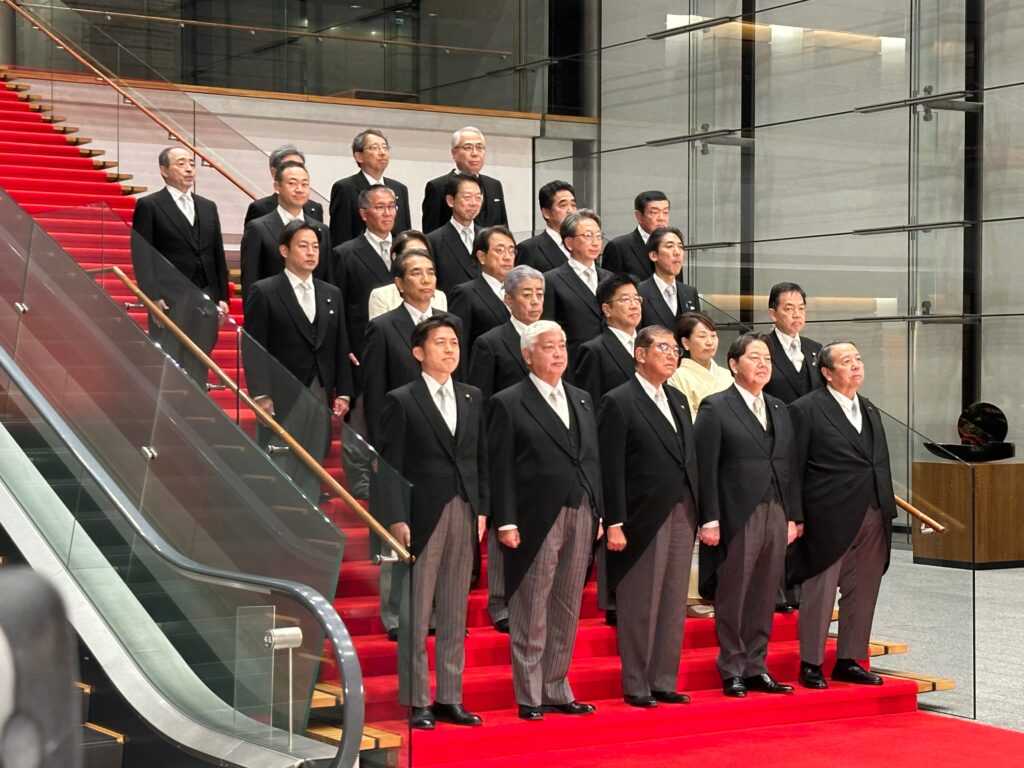
- ARAB NEWS
- 20 Aug 2025

TOKYO: As public concerns rise about the costs and necessity of these “non-essential tours,” Japanese Cabinet ministers are increasingly troubled by the idea of making their customary leisurely overseas trips during Golden Week. Members of the opposition parties, as reported by local media, are growing more dismissive of the value of some of these trips.
Golden Week in Japan is a series of national holidays that take place from late April to early May. The holidays during this period include Showa Day on April 29, Constitution Memorial Day on May 3, Greenery Day on May 4, and Children’s Day on May 5. Many Japanese people use this time to take a break from work and school to celebrate, travel, or engage in various activities.
The dynamic changes entirely, however, when politicians embark on their journeys with expenses fully funded by taxpayer money.
This year, 14 cabinet ministers, including Prime Minister ISHIBA Shigeru, will reportedly travel overseas.
Ishiba is currently in Vietnam and will later visit the Philippines. Foreign Minister IWAYA departed on the 25th for a trip that includes stops at the United Nations, Senegal, Saudi Arabia, and France. Justice Minister SUZUKI Keisuke will be visiting Kyrgyzstan and Uzbekistan, while Education Minister ABE Toshiko is set to travel to Ghana and Egypt. Economic Revitalization Minister AKAZAWA Ryosei, who is leading the Japan-U.S. tariff negotiations for Japan, will fly to Washington for a three-day visit.
Critics of overseas trips by government members have wondered why they are necessary during Japan’s Golden Week, with some saying the reasons offered are often frivolous.
Former Komeito Party leader Yamaguchi urged the government to ensure that most cabinet ministers remain in Japan and that effective crisis management is in place. He emphasized the importance of having either the prime minister or the chief cabinet secretary always present in Japan, along with the majority of cabinet ministers. This is crucial to prevent any potential crisis from escalating due to the absence of key decision-makers, he warned.
A lawmaker from the ruling Liberal-Democratic Party shrugged off the opposition’s criticism by stating, “Canceling the diplomatic schedule will harm the national interest.” He argued that these overseas trips are not trivial; rather, they are essential for maintaining diplomatic relations and safeguarding Japan’s national interests, especially during a time of global economic uncertainty.
During a board meeting on April 25, the House of Councilors Committee on Rules and Administration expressed hesitation in approving overseas trips for Foreign Minister Iwaya and other cabinet ministers during the Golden Week holidays. Concerns were raised about the necessity of such travel, particularly considering rising prices and the weak yen.
ISHIBASHI Michihiro of the Constitutional Democratic Party of Japan stated, “People’s lives are unstable due to rising prices and tariffs. We must take swift measures, as this situation differs from previous years.”
Years ago, a commentator sarcastically suggested that Golden Week, with many politicians away, would be the perfect time for a coup d’état in Japan. However, this also highlights the potential risks of having key figures absent simultaneously.
In July 2023, several members of the Women’s Affairs Division of the ruling Liberal Democratic Party faced public backlash for their trip to France. The controversy intensified when they posed for commemorative photos with the Eiffel Tower in the background. Many people viewed this as a misuse of public funds and a demonstration of insensitivity to the economic difficulties that ordinary citizens in Japan were experiencing.
Another severe criticism in the past was directed at a minister who received approval to visit resort mountains in New Zealand, justifying it “as a tour to study the administration reform.”